Discover Grattan Institute
Grattan Institute

Grattan Institute
Author: Grattan Institute
Subscribed: 1,801Played: 32,178Subscribe
Share
© All rights reserved
Description
Everything you need to know about Australian public policy.
Grattan Institute is dedicated to developing high quality public policy for Australia’s future. Our podcasts cover a range of public policy topics focusing on the main issues facing Australia.
Our podcasts concentrate on budget policy, economic growth, energy, health, institutional reform, household finances, school education, and disability policy.
Grattan Institute is dedicated to developing high quality public policy for Australia’s future. Our podcasts cover a range of public policy topics focusing on the main issues facing Australia.
Our podcasts concentrate on budget policy, economic growth, energy, health, institutional reform, household finances, school education, and disability policy.
316 Episodes
Reverse
On 11 December, we celebrated the official launch of Grattan Institute’s 2025 Prime Minister's Summer Reading List at State Library Victoria.
Grattan CEO Aruna Sathanapally was joined by ABC politics and economics journalist Tom Crowley and acclaimed author Cordelia Fine for a lively discussion, as we unveiled our selection of six of the most thought-provoking, compelling, and relevant books of 2025.
It was an extraordinary year, and these are extraordinary reads – not just for the Prime Minister, but for anyone passionate about public policy and Australia’s future.
Explore the full list: https://grattan.edu.au/news/prime-ministers-summer-reading-list-2025/
On a typical school day in Australia, about 11% of students who should be at school are absent.
These absences add up quickly. Missing one day of school a fortnight is the equivalent of missing four weeks a year – and missing a whole year between the first day of school and the end of Year 10.
On our latest podcast, education experts Amy Haywood and Molly Chapman discuss how to improve school attendance, with host Kat Clay.
Read the Policy Brief: https://grattan.edu.au/news/every-day-matters-improving-school-attendance-in-australia/
Australia is failing more than 130,000 people with significant psychosocial disability – despite spending billions every year on the NDIS.
This gap is fuelling a growing problem. People without adequate supports are more likely to experience homelessness, be hospitalized, or have their needs escalate, putting pressure on systems that are already under strain.
In this podcast, Sam Bennett, Mia Jessurun, and Reilly Polaschek, discuss the latest Grattan report, Bridging the Gap: Meeting the needs of Australians with psychosocial disability. In the report, they outline a plan to build a fairer and more effective system of psychosocial supports.
Read the report: https://grattan.edu.au/report/bridging-the-gap-meeting-the-needs-of-australians-with-psychosocial-disability/
Spending on Australia’s public hospitals has increased by an average of $3 billion every year in the past decade. Yet hospitals are still under strain. Ambulances are ramping outside emergency departments, waits for surgery are getting longer, and staff say they’re burning out.
And demand will only grow as Australians gets older and sicker. There’s no doubt governments will have to spend more - but with ever more pressure on budgets, they’re going to need to be smarter about spending.
On this podcast, health experts Peter Breadon and Elizabeth Baldwin discuss their new report, Smarter spending: Getting better care for every hospital dollar, and how to fix hospital funding in Australia.
Read the report: https://grattan.edu.au/report/smarter-spending-getting-better-care-for-every-hospital-dollar/
Housing in Australia’s cities is among the least affordable in the world. For decades, we have not built enough housing where people most want to live. A lack of well-located homes is dividing families and communities, and robs younger Australians of economic opportunity.
But there is a case for optimism – provided we change planning laws to increase housing density in our major cities.
On our latest podcast, Grattan housing experts Brendan Coates, Joey Moloney, and Matthew Bowes discuss their report More homes, better cities: Letting more people live where they want.
Read the report: https://grattan.edu.au/report/more-homes-better-cities/
Australia will fail to hit its climate change target of net zero by 2050 unless it imposes a constraint on emissions from the electricity sector.
In this podcast, our energy and climate change policy experts Alison Reeve and Tony Wood talk about the thing Australia’s political leaders still refuse to talk about: carbon pricing.
Alison and Tony also discuss the modelling for their new Grattan report, which which shows that governments can act to cut electricity emissions without hurting Australians in the hip pocket.
Read the report: https://grattan.edu.au/report/bills-down-emissions-down-a-practical-path-to-net-zero-electricity/
Australia's workforce is almost evenly split between men and women, yet fewer than one in four Australians work in a gender balanced occupation.
But why does it matter? Turns out, it’s bad for workers, businesses and the economy.
In this podcast episode, host Kat Clay is joined by Jessica Geraghty to discuss her latest research on why fixing the gender balance matters.
Read the article: https://grattan.edu.au/news/fixing-the-workforce-gender-balance-is-in-everyones-interest/
This week, the Economic Reform Roundtable met to discuss how to boost Australia's productivity, where Grattan Institute's CEO spoke on four key areas for tax reform. A robust tax system plays an essential part in creating a competitive and productive economy - but how do we balance the system to create a better tax mix?
In this podcast, CEO Aruna Sathanapally and Senior Associate Jessica Geraghty break down how to build a better tax system for Australia.
Read the full speech: https://grattan.edu.au/news/a-better-tax-system/
Over 1.3 million students sat the NAPLAN tests in March, which provides a health check on Australia's education system.
Now, the results are in. But what do they reveal about the state of education in Australia?
In this podcast, host Kat Clay is joined by education experts Amy Haywood and Molly Chapman to unpack the latest NAPLAN data. They discuss how students are tracking, and what can be done to improve the results across Australia.
Donate to Grattan https://grattan.edu.au/donate
Some people love it, some people hate it. But whatever you feel about gas, Australia urgently needs a gas strategy. Listen to our energy experts Alison Reeve and Tony Wood discuss the highly contested role of gas as Australia strives for net zero.
The NDIS is a vital part of Australia’s social fabric, but the scheme has grown too big, too fast.
Grattan’s new report, Saving the NDIS: How to rebalance disability services to get better results, presents a four-step plan to make the NDIS sustainable. In this podcast, report authors Sam Bennett, Mia Jessurun, and Hannah Orban are joined by Senior Fellow Alastair McEwin to discuss how to rein in costs while ensuring disabled Australians get the support they need.
Read the report: https://grattan.edu.au/report/saving-the-ndis/
Full podcast transcription: https://grattan.edu.au/news/how-to-save-the-ndis/
Over decades of compulsory contributions, Australians have amassed $4 trillion in retirement savings. But behind this headline success lies a range of unresolved policy problems.
The promise was a more comfortable retirement. The reality is a taxpayer-subsidised inheritance scheme.
Listen to our CEO Aruna Sathanapally in conversation with Grattan’s superannuation policy experts, Brendan Coates and Joey Moloney, as they critique a system that needs reform.
For more information, visit: https://grattan.edu.au/
No one looks forward to seeing a specialist—whether it’s a cardiologist, paediatrician, or psychiatrist. A referral often signals your GP is concerned about a serious health problem: a suspicious lump, a complex condition, or a health issue that needs specialised attention.
For many Australians, it can be a worrying time. And those worries only get worse when faced with high specialist fees and long wait times.
In this episode, Senior Associate Elizabeth Baldwin is joined by co-authors Peter Breadon and Dominic Jones to unpack the findings of Grattan Institute’s latest report, Special treatment: Improving Australians' access to specialist care. Together, they explore why specialist care is so hard to access—and what can be done to fix it.
Read the report: https://grattan.edu.au/report/special-treatment-improving-australians-access-to-specialist-care/
Australia has a maths problem: one in three Australian school students fail to achieve proficiency in maths.
When maths is taught well, children and the nation benefit. But taught poorly, students are robbed of a core life skill. Adults with weaker maths skills have worse job prospects and are more likely to struggle with routine tasks such as managing budgets and understanding health guidance.
Join Amy Hayward, Education Deputy Program Director, in conversation with co-authors Nick Parkinson and Dan Petrie, about how to boost students' maths proficiency in primary schools.
Read the report: https://grattan.edu.au/report/maths-guarantee/
Whether it’s increasing rent or mortgage repayments, the surging cost of buying a house or simply finding a secure place to live, Australians are struggling more than ever with housing costs. And with a federal election around the corner, cost-of-living is one of the biggest issues facing voters.
Labor is spruiking the housing policies that it legislated over its first term, including the newly expanded Help to Buy scheme. The Coalition is promising to allow first home buyers to use their super to help purchase their home. Both parties are proposing a two-year ban on foreign residents purchasing existing homes.
But do the policies on offer from the major parties go far enough to help make housing more affordable for more Australians? In this podcast, two Grattan experts, Brendan Coates and Matthew Bowes, evaluate the housing policies on offer – and suggest that whoever wins the election should pursue more comprehensive reforms.
Read the 2025 Orange Book: https://grattan.edu.au/report/orange-book-2025/
Is the 2025 federal Budget right for these economic times? In this special pre-election Grattan podcast, our experts give their verdict.
Host Kate Griffiths is joined by Grattan CEO Aruna Sathanapally and health policy expert Peter Breadon to analyse what was good in the Budget, what was missing, and what the next government – whether Labor or Coalition, majority or minority – should do to build a better Australia.
As Australia prepares for the 2025 federal election, our new Orange Book identifies the big reforms needed to set Australia on a more prosperous path.
Find out what policies should be on the agenda of whoever wins the election – whether Labor or Coalition, majority or minority – on our latest podcast, with Aruna Sathanapally, Tony Wood, and host Kate Griffiths.
Read the Orange Book: https://grattan.edu.au/report/orange-book-2025/
For decades, Australia has been a global leader in child immunization efforts.
Vaccination has protected millions of children from preventable diseases like diphtheria, measles and whooping cough. But after child vaccination rates peaked in 2020 at around 95%, we're now seeing an alarming decline.
In this podcast, health policy experts Peter Breadon and Wendy Hu discuss these concerning trends and what governments can do to boost vaccination rates in Australia. Hosted by Kat Clay.
Relevant research
- Child vaccination in Australia is falling - The Conversation (https://grattan.edu.au/news/child-vaccination-in-australia-is-falling/)
- Falling vaccination rates endanger us all - The Sydney Morning Herald (https://grattan.edu.au/news/falling-vaccination-rates-endanger-us-all/)
Last Tuesday, the Reserve Bank of Australia delivered its first rate cut in over four years.
For many, the tumultuous years of rate rises have felt like a cost-of-living gauntlet. Inflation has driven up the cost of household bills, groceries and housing, with families slashing their spending to make ends meet.
Despite the RBA’s independence from government, the rate cut falls under the shadow of a looming election, and both major parties are using the decision to pitch policies that ease the cost-of-living crisis.
On this podcast, host Kat Clay interviews Grattan experts Trent Wiltshire and Jessica Geraghty, on the RBA’s decision, what it means for the election, and Australia’s economic outlook.
Helpful links:
Statement by the Reserve Bank Board: Monetary Policy Decision https://www.rba.gov.au/media-releases/2025/mr-25-03.html
Australia's Productivity Pitch: https://engage.pc.gov.au/projects/productivity-pitch/surveys/idea/survey/your-idea#submissions
Most Australians have enough to enjoy a comfortable retirement. But too many retirees who rent are being left behind.
Today, two thirds of retirees who rent privately live in poverty, including more than three in four single women. And a growing number of older Australians are at risk of becoming homeless. With home ownership falling across the board, it’s only going to get worse.
On this podcast, host Kat Clay discusses Grattan’s new report, Renting in Retirement: Why Rent Assistance needs to rise, with authors Brendan Coates and Matthew Bowes.
Read the report: https://grattan.edu.au/report/renting-in-retirement-why-rent-assistance-needs-to-rise/


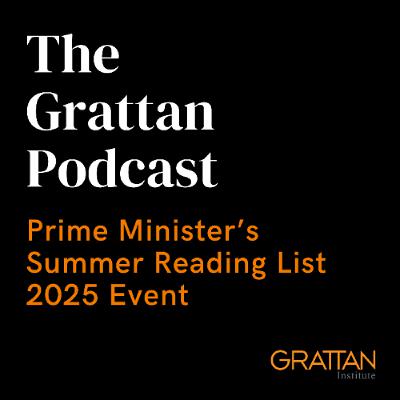
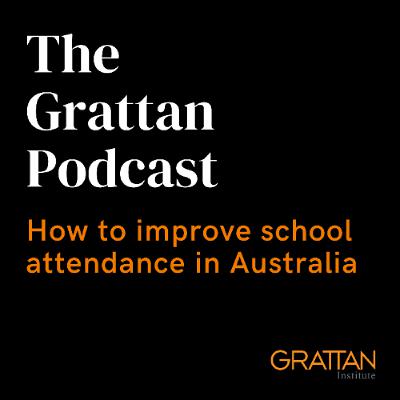
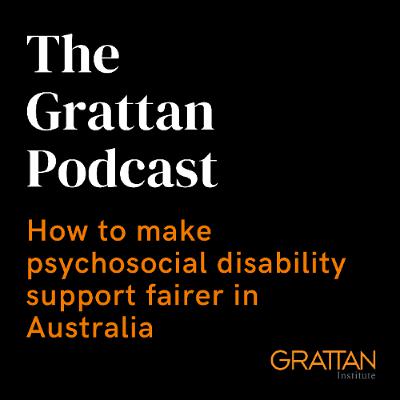
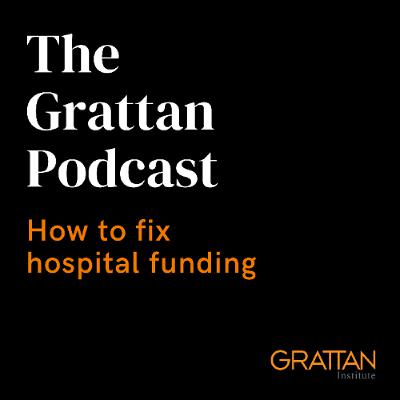
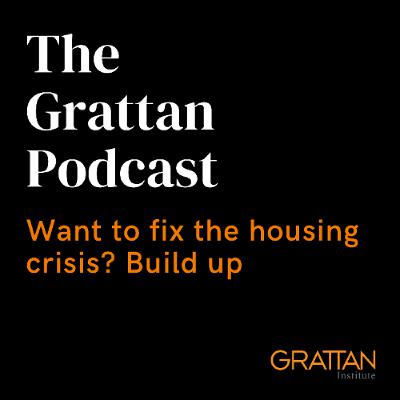
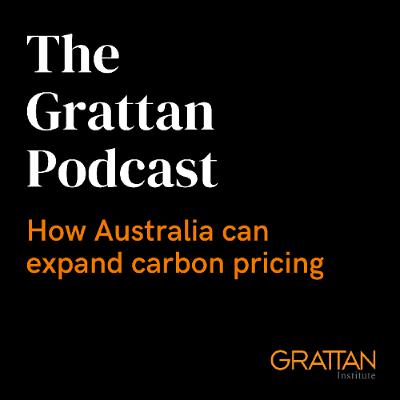
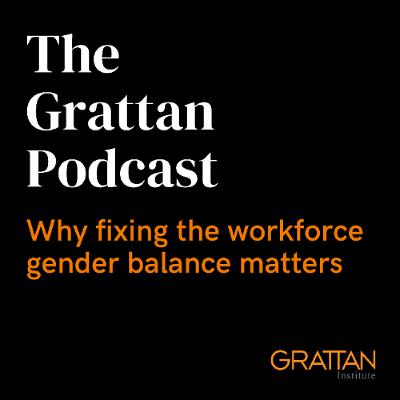
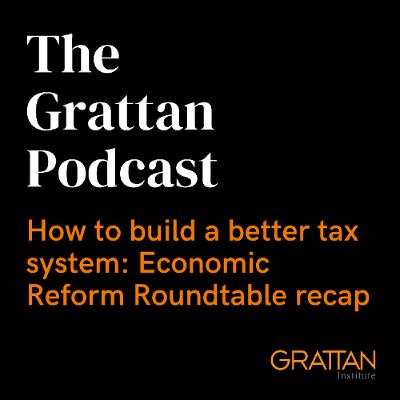
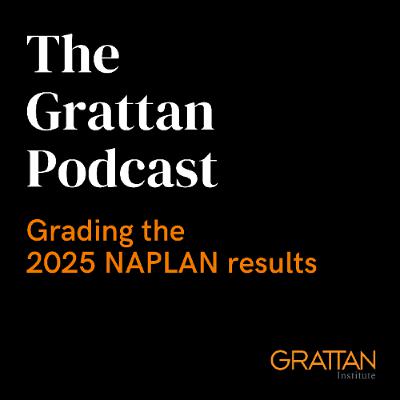
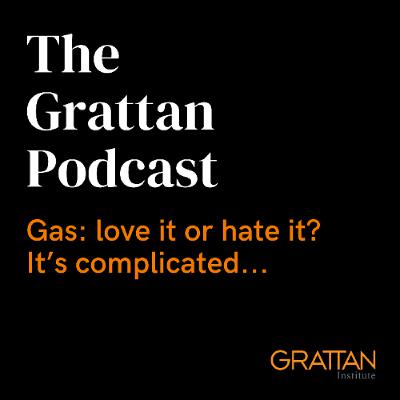
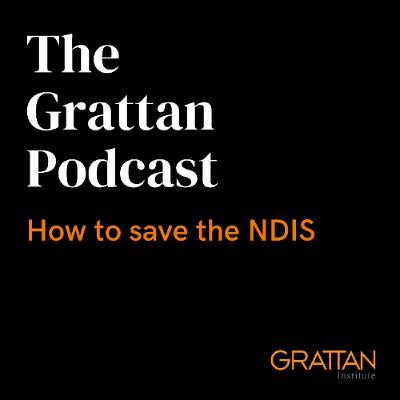
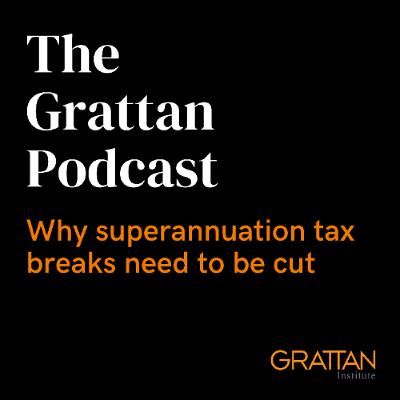
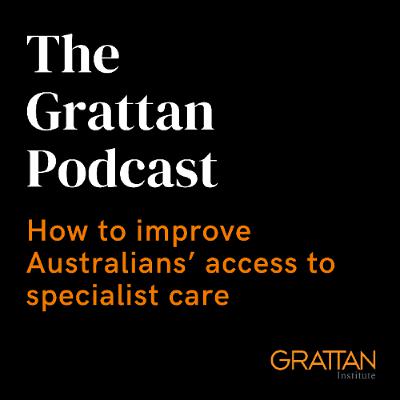
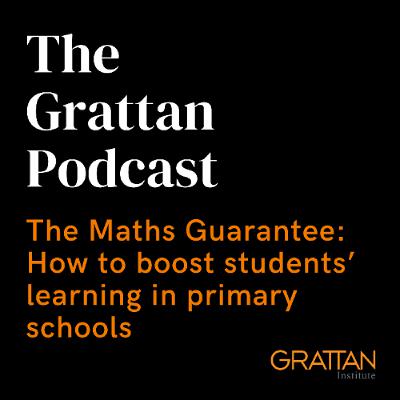
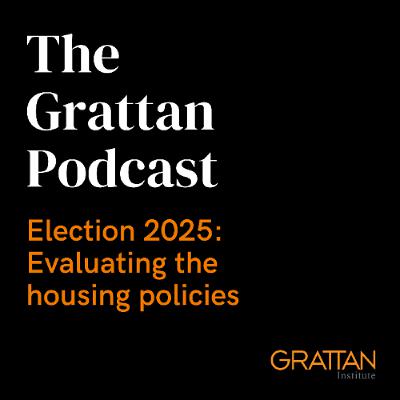
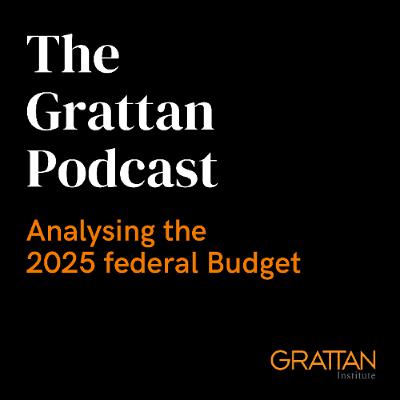
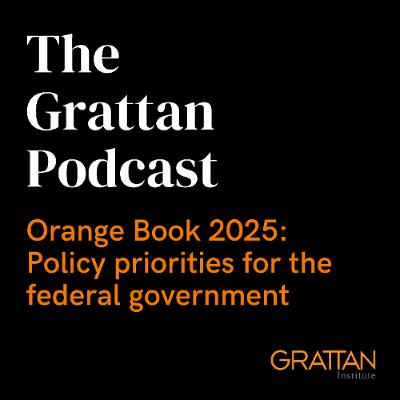
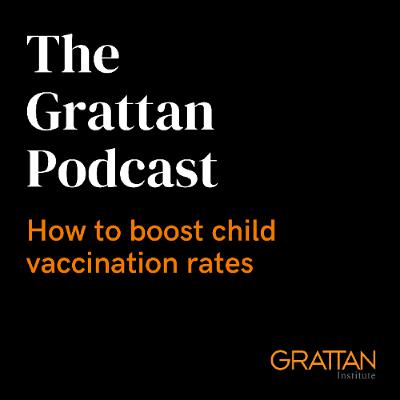
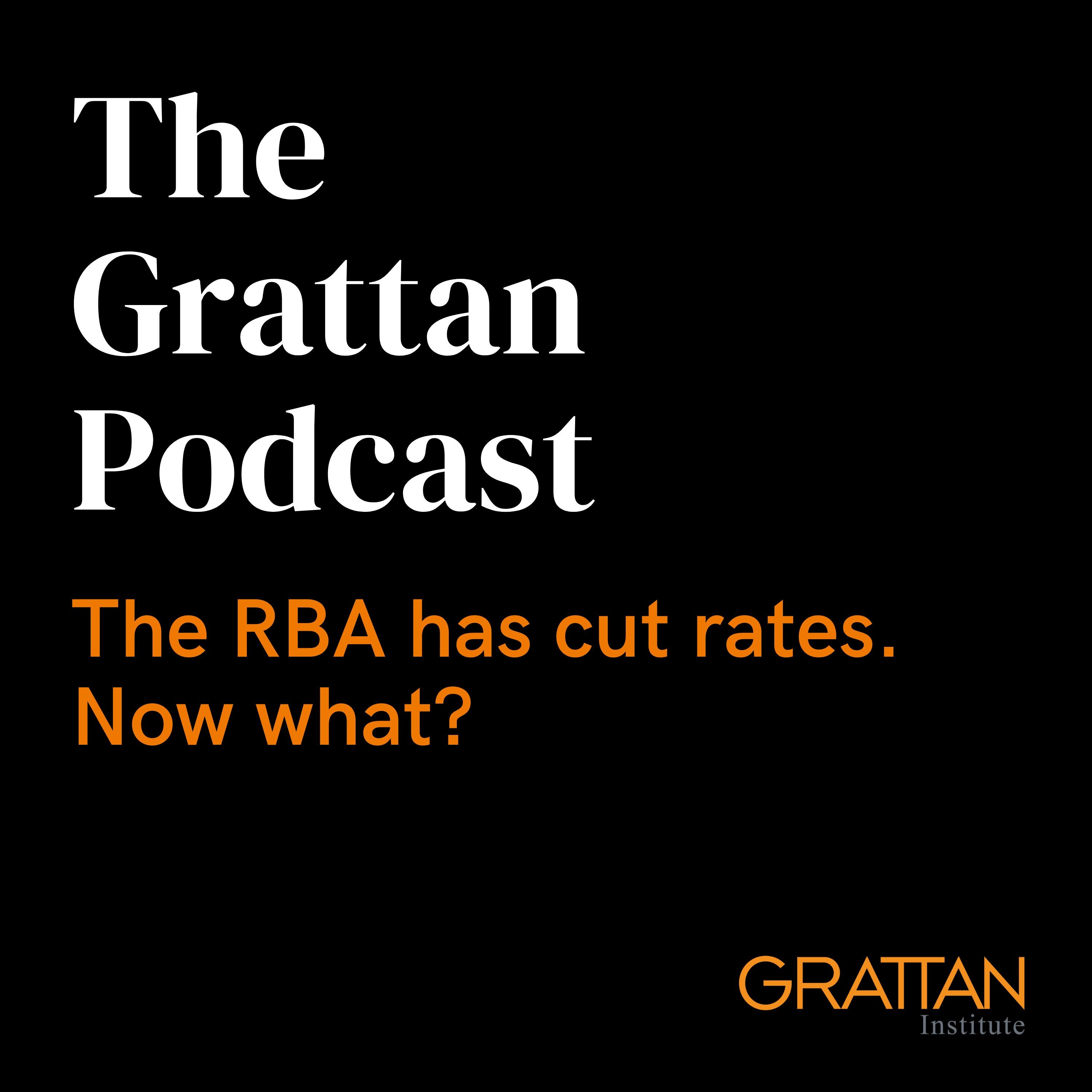
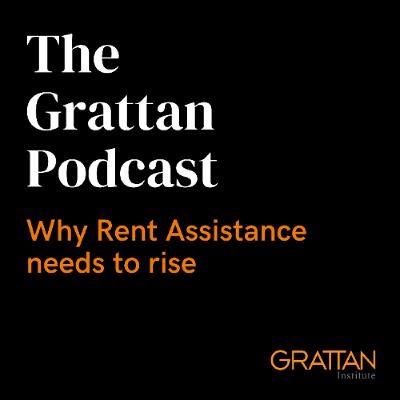



I live on a DSP and have given up on primary health care as I can not afford to go to a GP, as none of the 12 surgeries in my rural town bulk bill. Even with a discount and the rebate, it's so cost prohibitive that I just end up in the local hospital emergency department for treatment when my condition becomes so critical that I can not ignore it anymore. There is a real crisis of health care that no one's talking about.
Worry less?! This report is frightening. I really wish Keating was invited to give his two cents.